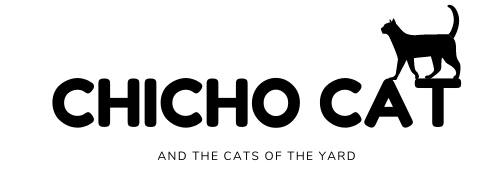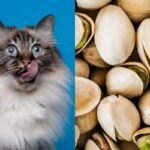Cherries are a delicious summer treat for many humans (also, summer fruits are mango, watermelon and melon and strawberries). Whether enjoyed fresh, baked into pies, or blended into smoothies, these vibrant fruits are a popular choice for their sweet taste. So, can cats eat cherries? The short answer is no, cats should not eat cherries. While cherries themselves are not toxic to cats, they do pose several potential health risks that pet owners should be aware of.
Can cats eat cherries without seeds?
While cherries without seeds pose fewer risks to cats, they are still not an ideal treat for several reasons. Removing the seeds from cherries reduces the risk of cyanide poisoning, which can occur if a cat ingests the seeds. However, even without the seeds, cherries can still pose a choking hazard, especially for small or curious cats who may attempt to swallow the fruit whole or in large chunks. Cats have relatively small throats compared to their size, making them susceptible to choking on large pieces of food.

Can cats eat black cherries?
Like other varieties of cherries, black cherries contain pits and stems that pose a significant risk to cats. These parts of the fruit contain compounds like cyanide, which can be toxic if ingested in large quantities (apple seeds contain cyanide compounds too). Cyanide interferes with the body’s ability to utilize oxygen properly and can lead to serious health complications, including difficulty breathing, seizures, and even death (check here for signs that your cat is sick). Even if a cat manages to eat a black cherry without swallowing the pit or stem, there is still a risk of cyanide exposure.
Can cats eat dried cherries?
Dried cherries, like many other dried fruits (such as pineapple,banana) are significantly higher in sugar content compared to their fresh counterparts. Cats have a limited ability to process carbohydrates and sugars in their diet. Moreover, a diet high in sugar can contribute to obesity, diabetes, and other health issues in cats over time. While dried cherries contain some vitamins and minerals, they offer limited nutritional value to cats.

Can cats eat maraschino cherries?
Maraschino cherries, with their vibrant red color and sweet flavor, are a popular garnish for desserts and cocktails. Maraschino cherries are often treated with artificial colors and flavors to enhance their appearance and taste. These additives may include chemicals and preservatives that can be harmful to cats. Some cats may have adverse reactions to artificial ingredients, experiencing gastrointestinal upset or allergic reactions. It’s essential to read the ingredient list carefully and avoid feeding maraschino cherries with artificial additives to your cat. If you’re looking for alternative treats to offer your cat, consider options such as freeze-dried meat treats or small pieces of cooked chicken or fish (like tuna). These treats are protein-rich and more closely align with a cat’s natural dietary preferences.
Can cats eat pitted cherries?
Pitted cherries, which have had the seeds removed, may seem like a safer option for cats. But are they really suitable for our feline companions? Even without the pits, cherries can still cause digestive upset in cats. The high sugar content of cherries, whether fresh or pitted, can disrupt a cat’s delicate digestive balance and lead to symptoms such as diarrhea, vomiting, or abdominal pain. Cats have evolved to primarily eat a meat-based diet, so introducing sweet fruits like cherries (and oranges) into their diet may not be well tolerated by their digestive systems.

In conclusion, while cherries may be a tasty and nutritious snack for humans, they are not suitable for cats. The risks associated with cherry consumption, including choking hazards, digestive upset, and potential allergic reactions, outweigh any potential benefits. To keep your feline friend safe and healthy, it’s best to stick to a diet formulated specifically for cats and avoid offering them foods that are not vet-approved.








